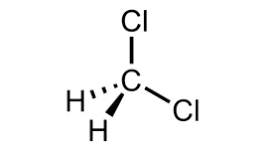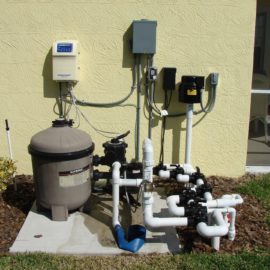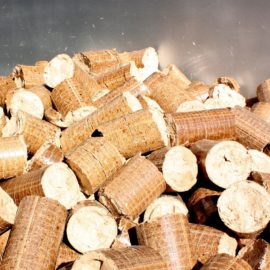
If the LDEQ reached a weak sweet heart deal with a company then what do you have to do? Go to the EPA.
A handful of northern St. James Parish residents and environmental groups have asked federal regulators to sanction steel-maker Nucor over its history of pollution, claiming the state’s watchdog won’t take a hard enough line. In a new petition to the U.S. Environmental Protection Agency, Romeville-area residents and environmental groups claim the Louisiana Department of Environmental Quality has reached a weak and cheap settlement with the $33 billion public company over air permit violations, which, they argue, does nothing to deter future infractions. “For nearly a decade, Nucor has been and continues to emit increasingly high levels of toxic and hazardous pollutants in clear violation of the law, with LDEQ taking little or no action to enforce permit limitations and protect the health and environment of St. James Parish,” the residents allege in the petition.
theadvocate.com
The violations are at the Nucor plant that makes iron pellets for steel.
The violations happened at Nucor’s $750 million plant north of Romeville and Convent on the east bank the river. Handling dusty raw ore shipped up the river, the complex purifies the iron and turns it into pellets for steel making. The $89,760 settlement at issue, which was made public in early June, addresses a range of violations, including emissions of caustic sulfuric acid mist and highly flammable hydrogen sulfide gas that had went unchecked for years after the plant opened in 2013. Nucor had no authority to release the chemicals at all under its original air permit. Sulfuric acid and hydrogen sulfide are toxic pollutants known to damage the lungs and other body systems, even at low levels. The settlement also includes other permit violations, including the company’s erroneous decision to turn off a required air monitor for dust emissions for over a year and a half. Fine particulates are one of the key air pollutants EPA has states monitor to cut down on premature deaths from respiratory and other ailments.
Quite a litany of violations and a clear picture that the industry cannot police itself. So what happened next?
Filed late last month, the new petition was brought by the Louisiana Bucket Brigade, Tulane Environmental Law Clinic and a new community group of parish residents called Inclusive Louisiana, whose members include Myrtle Felton, Barbara Washington and Gail LeBeouf. They have been regular critics of industrial development in St. James. The appeal is not a lawsuit, but a direct citizens’ request allowed under the U.S. Clear Air Act to urge the EPA to exercise its oversight of state air pollution regulation. The EPA has no deadline to respond, if at all. But, the petition comes as increasing attention is put on the impact of pollution on the Mississippi River corridor between Baton Rouge and New Orleans amid fights over other St. James projects like a large Formosa Plastics plant proposed for Welcome and the now withdrawn Wanhua plant proposed for Convent.
Of course the local politicians are worried as money trumps citizens health to them.
Local officials, like Parish President Pete Dufresne, have aired worries that halting new industrial growth St. James would force reductions in government services because of the parish’s historic reliance on industry for jobs and tax revenue. The Nucor plant employs around 150 people and was St. James’ 10th largest employer in 2020, a parish audit says. Since taking office in January 2020, President Joe Biden has promised to take a harder look at industries that may disproportionately affect minority communities with pollution and other impacts, a concern that has been coined with the term and regulatory emphasis “environmental justice.” EPA Administrator Michael S. Regan starts a weeklong trip through Louisiana, Mississippi and Texas on Nov. 15 to highlight environmental justice concerns. He plans to hear from affected residents in New Orleans and St. James and St. John the Baptist parishes on Nov. 16 and 17, an itinerary shows. In their petition, the groups had requested a meeting with EPA regional officials. It’s not clear if they are on Regan’s itinerary.
This fits in line with the recent report that the Cancer Alley is the most polluted area in the country. The most toxic air. This plant contributes to it.
EPA data show the river region has hotspots with among the highest cancer risks from air pollution in the nation, but state cancer incidence data suggest cancer rates generally aren’t higher, in a statistically significant way, than statewide averages, which are elevated over national rates. A spokeswoman for EPA Region 6 in Dallas didn’t respond to a request for comment. Neither did Nucor’s press office. DEQ spokesman Greg Langley declined to comment. “This document was submitted to EPA and any comment should come from them,” he said. In a statement, Inclusive Louisiana maintained that Nucor’s emissions of sulfuric acid mist, which can corrode metal, are responsible for damage to their recently purchased metal roofs and vehicles. According to the statement, Felton, an Inclusive Louisiana cofounder, sought help from Nucor for her roof damage, but the company denied any responsibility. During Hurricane Ida, the damaged roof collapsed and Felton’s home became uninhabitable. “Today, I’m homeless, while Nucor continues to profit from spraying sulfuric acid into our community,” Felton said.
No comment make sense as how do you defend the indefensible? Nucor’s emissions were not reported for a while until problems were noted.
Nucor self-reported the hydrogen sulfide and sulfuric acid emissions after it discovered problems, telling DEQ in late July that it has been unable to find a solution to stop the emissions, despite repeated and costly efforts. When originally built, the plant was supposed to have a new combustion design to reduce greenhouse gases and have new controls to cut down sulfur emissions, but those hopes haven’t panned out, the company said. Since the initial discovery of the unpermitted sulfur emissions a few years ago, DEQ has permitted the releases and authorized Nucor to turn off the air monitor in exchange for greater dust controls, records show. DEQ is considering a new air permit revision that would boost Nucor’s ability to release those two toxic sulfur pollutants even more — 3.5 to 7 times the current permit limits — but drastically cut particulate emissions, records show. In September, Nucor submitted modeling showing that even with the increased emissions, hydrogen sulfide, sulfuric acid and benzene emissions would not worsen community air conditions to unsafe levels. Environmentalists have long criticized state air standards, however, as out of date or far higher than other states’ or other EPA health standards. The groups that filed the new petition have asked EPA for tougher fines, additional air monitoring and better control on Nucor’s emissions.
Why is this an either or situation rather than making them cut back on both. Again, these are costs not calculated when the parishes make their determinations for another polluting company.



